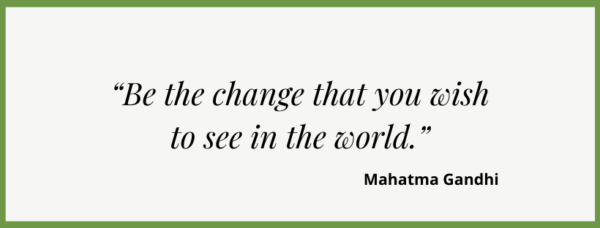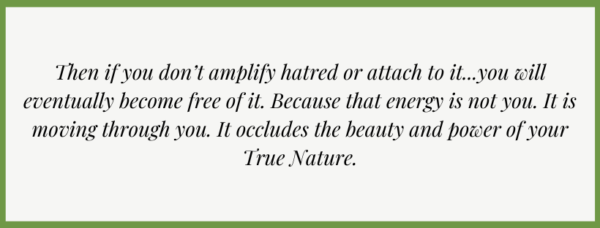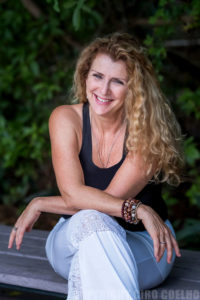A client asked me the other day when Trump had first contracted COVID-19, “is it wrong to wish him dead?” It was partly a rhetorical question and partially not. If on the Highest level, the aspiration is to resist nothing that occurs— i.e. see it as something moving through the field of awareness— then how do we affect change on the relative level? In short, how do we negotiate a cosmic “Yes,” and a human-based “No”?
I’ve been sitting with this for the last few years as I live in the new “mixed neighborhood” of contemporary life, i.e. a neighborhood of both democrats and republicans, and I love my neighbors. But of course with the pandemic and the election, things have become much more polarized absolutely everywhere.
Spiritual Teacher Rupert Spira talks about the importance of providing “relative assistance” and the importance of triaging the moment in front of us. That means if someone has been hit by a car we don’t talk Karma, we call a fricken ambulance; if someone is an abuser, we call the cops, etc. So again, how to hold the wisdom of clear teaching while dealing with so much harm, greed and chaos? What I’ve come up with is one all-important variable—hatred. Can we elicit real change without hating others or hating what has occurred

Tall order, right? I’ve had many experiences where I had to work through deep pools of hatred. I’m not a hateful person by nature, it’s just that the level of raw pain that was flowing through me was so pervasive, it had all of me and it felt impossible not to hate. But my commitment to see clearly and no longer learn through suffering is so complete, I’ve been able to let go of truck loads of pain. Let me be clear, I’m not condoning sexual abuse, abduction, rape, or intentional violence, etc. I’m simply saying that ultimately they aren’t worth the cost of having to live with deep pools of hatred. We let go of the hatred, not to let others off the hook, but because to be a true change agent, we need to be unencumbered for real agency. The heavy burden and warping that hatred generates, will eventually stunt us.

We are all shaped by our experiences, good and bad, and we are reflections of them. Aren’t we all preoccupied with our own needs over others’? How is it really different to hate the person who hates you? Or to wish physical harm on the person who physically hurt you? Granted these impulses are normal, human responses, but in order to make this world a better place, we need to elevate above the human instinct for retribution.
What I’m proposing is hard. It used to piss me off. But it’s just that I don’t see any other way. I’m not even saying that the arising of hatred inside us can be released on a dime. In fact, it will have a life of its own. But can’t we strive to not fan the flames of hatred within our own mind? I’m not as saintly as Gandhi, but Gandhi inspired MLK, and he inspired John Lewis and so on… These men were passionate, articulate, resolved, and brought about massive ripples of change AND an increased humanity (even in some who were once their attackers)—and in their own lifetimes! Each, I’m sure, felt feelings of hatred, but in their own way kept it from taking over their heart. (Too many other examples of inspirational people to list here, thankfully). Life has been altered by average people inspired to do something extraordinary. Ultimately, they are not remembered for the hatred— which could have been justified—but for their passionate desire to bring about change.

This county is groaning under the strain of heightened hatred and division like I’ve never witnessed (and I grew up in Berkeley in the 60’s and 70’s). So here’s how you can help right now; as a practitioner of embodied awareness become conscious of the energy of hatred moving through you. Notice when you lose yourself in newsfeeds, posts, articles, TV, streaming content, conversations with others, etc. See it, face it, feel it. Then if you don’t amplify hatred or attach to it…you will eventually become free of it. Because that energy is not you. It is moving through you. It occludes the beauty and power of your True Nature.
Instead, to bring about the change I want to see in the world, I start by clearing my own reactive energy. Then I ask, “what action can I take?” or “what can I do to serve the solution?” If our goal to is protect the planet, care for vulnerable people, undercut greed, reduce poverty, have all life be treated with dignity, then remember the following: “the only thing necessary for the triumph of evil is for good men to do nothing.” (Attributed to Edmund Burke). But what he actually said was, “When bad men combine, the good must associate; else they will fall, one by one, an unpitied sacrifice in a contemptible struggle.”

